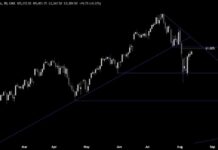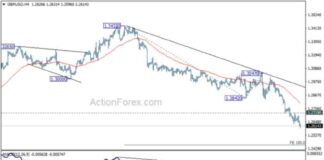The Consumer Confidence Index, a key indicator of consumers’ perception of the economy, saw a sharp decline in September according to the latest report from the Conference Board. The index dropped to 98.7, down from 105.6 in August, marking the largest one-month decline in over three years. This significant decrease reflects growing concerns about jobs and business conditions among consumers.
Factors Contributing to the Decline
The decline in the Consumer Confidence Index can be attributed to a variety of factors, including uncertainties surrounding the labor market and business conditions. According to Dana Peterson, chief economist at The Conference Board, consumers’ assessments of current business conditions turned negative, while views of the current labor market situation softened further. Additionally, consumers expressed more pessimism about future labor market conditions and less positivity about future business conditions and income.
The last time the confidence index dropped significantly was during a period of rising inflation, which eventually reached its highest level in over 40 years. This historical context highlights the impact that economic factors can have on consumer sentiment and confidence levels. The recent decline in the index reflects similar concerns about inflation and its potential effects on the overall economy.
Impact on Financial Markets
Following the release of the report, stock markets experienced some brief losses, while Treasury yields moved lower. The market reaction underscores the importance of consumer confidence as a key driver of economic activity and investor sentiment. The decline in the Consumer Confidence Index is likely to have broader implications for financial markets and economic policy moving forward.
In addition to the overall drop in consumer confidence, the present situation measure also worsened significantly, falling by 10.3 points to 124.3. The expectations index, which measures consumers’ outlook on future economic conditions, decreased by 4.6 points to 81.7. A reading below 80 on the expectations index is often seen as a signal of a potential recession, further heightening concerns about the state of the economy.
Consumer Concerns and Outlook
Respondents to the survey expressed growing concerns about jobs and inflation, with the percentage of consumers believing that jobs are plentiful decreasing to 30.9% from 32.7% in August. The measure of jobs considered “hard to get” increased to 18.3%, up from 16.8%. These shifting perceptions of the labor market reflect broader anxieties about employment opportunities and job security among consumers.
On the topic of inflation, the 12-month outlook rose to 5.2%, indicating heightened concerns about rising prices and their impact on consumers’ purchasing power. Inflation has been a key focus for policymakers and economists in recent months, as fluctuations in prices can have wide-ranging effects on the economy and consumer behavior.
Despite these challenges, the proportion of consumers anticipating a recession over the next 12 months remains relatively low. However, there has been a slight uptick in the percentage of consumers who believe that the economy is already in a recession, highlighting the uncertainty and volatility in the current economic environment.
The survey was conducted through September 17, just one day before the Federal Reserve announced a half percentage point reduction in benchmark interest rates. The rate cut was the first in four years and reflected the Fed’s concerns about inflation and the labor market. While the survey results do not capture the impact of this recent policy decision, they provide valuable insights into consumer sentiment leading up to the rate cut.
In conclusion, the sharp decline in the Consumer Confidence Index in September reflects growing concerns about jobs, business conditions, and inflation among consumers. The implications of this decline extend beyond individual perceptions to broader economic trends and financial market dynamics. As policymakers and economists continue to monitor these developments, the importance of consumer confidence as a key indicator of economic health and stability remains paramount.

















